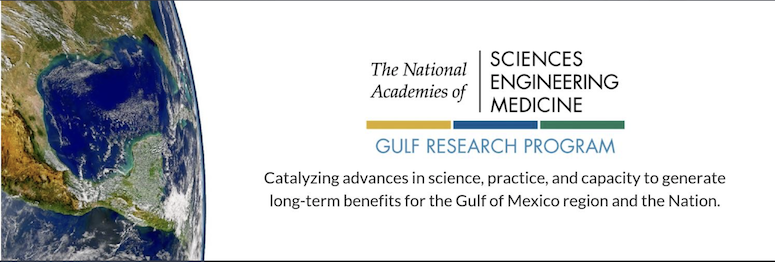Eight sophomores representing more than a dozen majors form the inaugural class of students enrolled in the Gulf Scholars Program (GSP) at Rice.
The initiative is part of a five-year, $12.7-million pilot program designed to prepare undergraduates to serve the region as scientists, engineers, educators, community leaders and policymakers in communities along the Gulf of Mexico. It is funded by the National Academies Gulf Research Program. In the first group are:
Chloe Chen, computer science and data science
Alexander Cho, biosciences and environmental/ecology
Shivani Gollapudi, biosciences and sociology
Evan Jasica, economics, environmental science
Hadley Medlock, English and creative writing
Valentina Osorio, chemistry and earth, environmental and planetary sciences
Madison Roy, computer science and cognitive science
Luis Verdin-Gomez, statistics and sociology
The students, chosen in the fall, are enrolled in a Gulf Immersion Course led by Emily Weaver, a senior in social policy analysis and anthropology at Rice. Next, they will proceed through the program’s combination of curricular and cocurricular activities. This summer they will conduct interdisciplinary research with faculty members and community partners. The goal is to address urgent environmental, health, energy and infrastructure challenges in the Gulf of Mexico region.
The program has been established at Rice and six other schools in the Gulf states: Florida A&M University, Florida State University, Jackson State University, Tulane University, the University of Alabama at Birmingham and Xavier University of Louisiana. Up to seven additional schools will be added each year through 2025, reaching more than 25 in the pilot phase.
Each school is funded to create academic, co-curricular and extracurricular experiences related to community health and resilience, environmental protection and stewardship, and offshore energy safety.
“We are building on Rice’s strengths to provide mentoring, training and interdisciplinary community-engaged research experiences for a new group of undergraduates each year in the areas of climate and hazard resilience,” said Jamie Padgett, Stanley C. Moore Professor in Engineering, professor of civil and environmental engineering, and faculty director for Rice’s Gulf Scholars Program.

